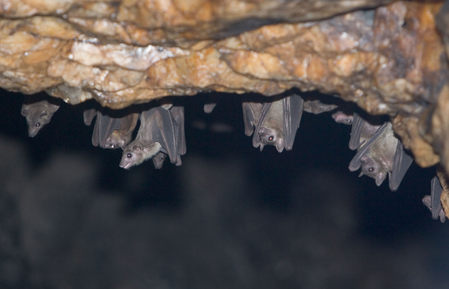
New Delhi — An international team of scientists from Japan, the US, Australia, and Belgium has identified a new Covid-19-like virus in a species of moustached bats in Brazil, raising concerns about potential spillover and the emergence of another zoonotic disease.
Bats are known natural reservoirs for many viruses, including betacoronaviruses — the family that includes SARS-CoV-2, the virus behind Covid-19, and MERS-CoV, which causes Middle East Respiratory Syndrome.
The researchers, from Osaka University and the University of Sydney, discovered the virus — named BRZ batCoV — in Pteronotus parnellii, a small insect-eating bat species distinguished by tiny hair tufts on its face.
Although this bat species is common across South America, experts suspect the virus may have been circulating unnoticed for months.
“We identified a full-length genome of a novel bat coronavirus (BRZ batCoV) from a Pteronotus parnellii bat sampled in Brazil that is phylogenetically distinct from known betacoronaviruses,” the researchers said in a paper posted on the preprint server bioRxiv, which has not yet undergone peer review.
Their analysis revealed that BRZ batCoV is sufficiently different from all five known Betacoronavirus subgenera, suggesting it could represent an entirely new subgenus.
Notably, the virus’s spike protein contains a functional furin cleavage site — a key molecular feature influencing how easily a virus can infect and cross between species. The site’s amino acid sequence (RDAR) differs by just one amino acid from that of SARS-CoV-2 (RRAR).
Furin cleavage sites are found in the surface proteins of other dangerous RNA viruses such as Ebola and avian influenza, and were a critical factor in the high infectivity of SARS-CoV-2.
The researchers also found that BRZ batCoV is more closely related to MERS-CoV than to SARS-CoV-2. MERS, sometimes referred to as “camel flu,” spreads less efficiently than Covid-19 but has a far higher fatality rate, killing roughly one-third of those infected.
While some experts have warned that the new virus could be spreading silently, the scientists who discovered it emphasize that there is currently no evidence BRZ batCoV infects humans or spreads beyond bat populations.
They stressed that their findings provide valuable insights into the evolutionary potential and zoonotic risk of BRZ batCoV, reinforcing the crucial role of bats as reservoirs of viral diversity that can occasionally jump species.
“Our discovery highlights the importance of continuous viral surveillance in bats, which are key hosts for future zoonotic emergence,” the researchers concluded.
With inputs from IANS